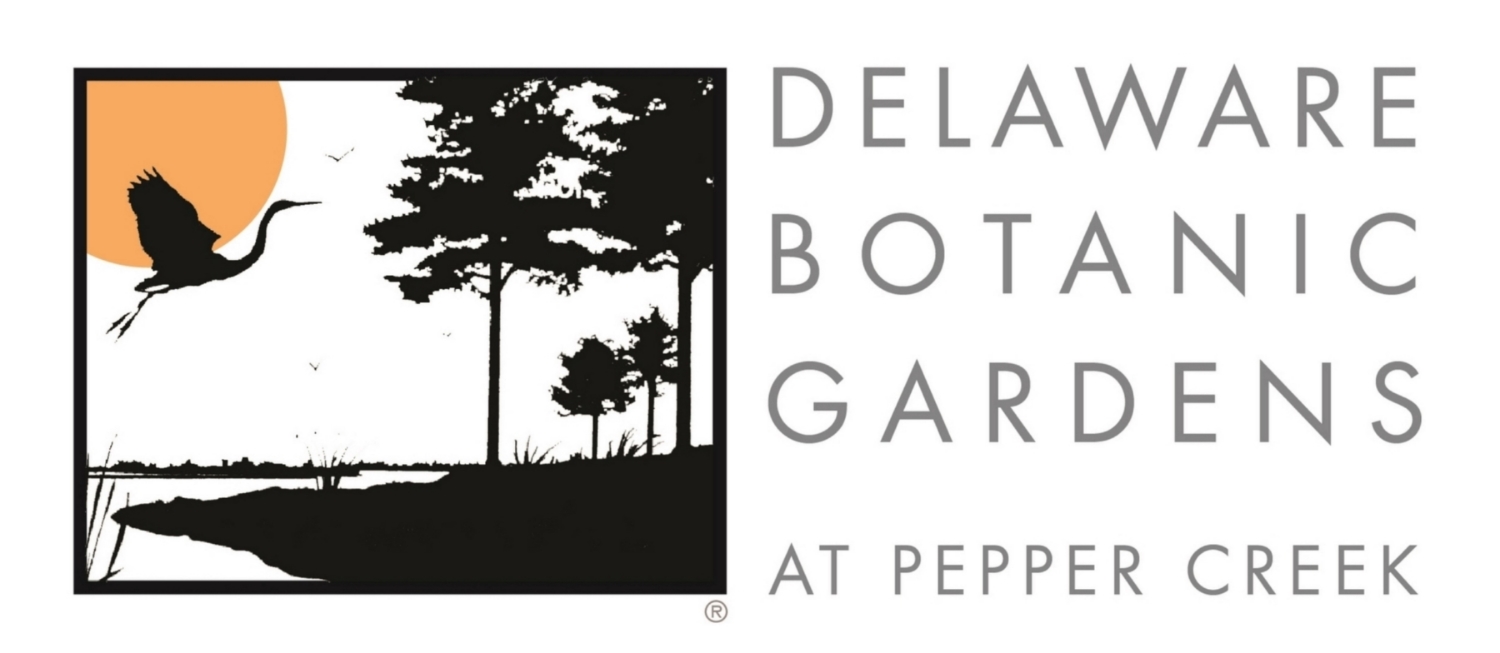Dogfish Head to sponsor DBG's Living Outdoor Classroom
/Mark Carter (second from left), director of Dogfish Head’s Beer & Benevolence program, presents the company’s $30,000 pledge to the Delaware Botanic Gardens at the brewery in Milton. Tyler Hammond, director of operations for Envirotech Environmental Consulting, is at the far left. They are joined by DBG leaders (from left) Gregg Tepper, Sheryl Swed, Henry DeWitt, Janet Point, Peter Carter, and Raymond Sander. Photo courtesy Dogfish Head Companies
When the Delaware Botanic Gardens opens, one of its most important features will be a Living Outdoor Classroom. This vital educational tool has moved closer to realization with the support of the Dogfish Head Companies, which has pledged $30,000 to create this learning center in the public garden being built along Pepper Creek. The natural area—centered on a freshwater intermittent wetland—will be named the Dogfish Head Outdoor Classroom.
Designed for visitors of all ages, this educational attraction was included in the garden plan to reconnect educators, children, and adults with nature. Studies show that natural spaces and materials stimulate imagination and spur inventiveness and creativity. Nature-based learning also calms and reduces stress while it promotes exploration and discovery.
“We are thrilled to be able to contribute to environmental education in our region through this outdoor classroom,” said Mariah Calagione of Dogfish Head, the brewery and distillery in Milton that has brought national recognition to Delaware. “Motivating people to go outside more has become so important in our internet age. This feature of the garden will expand the area’s opportunities for learning about nature.”
The outdoor learning center will be designed and constructed by Todd Fritchman of Envirotech Environmental Consulting, Inc., who has already brought this award-winning teaching tool into local classrooms. The freshwater wetland habitat, called a nonforested Delmarva bay, is a rare feature of Mid-Atlantic coastal areas such as the waterfront garden site.
Goals of the center include (1) to provide environmental interpretation and education with natural ecosystems, (2) to support science and interdisciplinary curriculum needs and standards, and (3) to inspire academic excellence and close achievement gaps.
At the wetland, educators, students, and other visitors will gain personal experience with Delaware’s coastal plain environment. For students, activities will be integrated with school curricula and cover a range of scientific pursuits, such as biology, environmental science, horticulture, physical science, and ecology. Participants will use an applied learning experience to help meet science education standards.
Many hands-on activities will challenge all visitors in this program of inquiry-based education, such as sampling plants and wetland creatures, observation of natural changes, species collection and inventory, and quantifying and qualifying findings.


